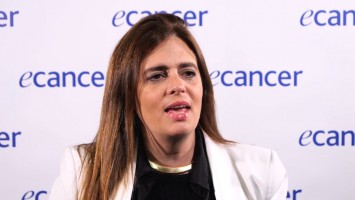The last two abstracts in the meeting in kidney cancer were very interesting, at least in kidney cancer. One is a subgroup analysis from CheckMate 025 which is a randomised phase III trial of nivolumab versus standard everolimus. Dr and colleagues looked at subgroup analysis and did find, actually, that the benefit in terms of overall survival with nivolumab is consistent across multiple subgroups. They looked at one prior therapy versus two or more; they looked at different risk groups, especially in the poor risk, that fact is really very significant; they looked also at patients with liver or bone metastases.
The same thing and in parallel, METEOR, which is a similar design study for everolimus second or third line study that used an experimental agent called cabozantinib which is an oral tyrosine kinase inhibitor against a VEGF receptor but also against MET and XL. In this study presented by Dr Escudier from France again there was subgroup analysis: the number of metastatic sites, the risk group, the tumour burden as well as liver, bone metastases, having received a prior immune checkpoint blocker etc. Progression free survival, if you look at the hazard ratio, they are all in the direction of cabozantinib over everolimus. So no shocking or no alarming finding here that goes in the other direction towards everolimus. So cabozantinib is superior to everolimus as well as nivolumab on further studies of subgroups.
There are other interesting data; there are data in renal cell looking at extreme responders or resistance to nivolumab. Work from Sloan Kettering, Dana Farber and Harvard as well as John Hopkins looking at the difference in the mutational load as well as the neoantigen load and immune signature between these two groups.
There is interesting data from Dr de Velasco looking at the pattern of relapse and the pattern of coming off therapy with first line, whether it is due to toxicity or with progression whether it influences your response to second line treatment, an important question for clinical care. His data was with atezolizumab in bladder cancer, PD-L1 inhibitor.
In prostate cancer there’s a lot of data presented, mostly subgroup analysis. There is interesting data from a large phase III trial from Dr Nick James, the STAMPEDE trial, where interestingly found the COX-2 inhibitor plus celecoxib plus zoledronic acid may result in a survival benefit, their data. This is a great meeting, a lot of food for thought and we are having fun.








